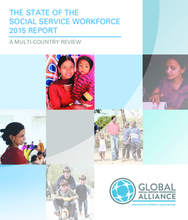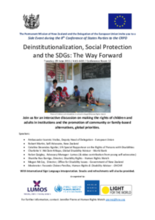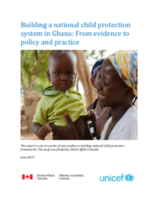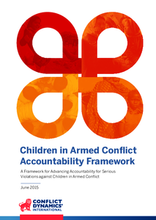Displaying 3401 - 3410 of 4420
The MenCare Campaign in collaboration with the Clinton Foundation’s No Ceilings: The Full Participation Project and HeForShe: UN Women Solidarity Movement for Gender Equality, is hosting a launch of the world’s first-ever report on the State of the World’s Fathers – providing a global view of the state of men’s contribution to parenting and caregiving around the world.
The 2nd Annual Global Social Service Workforce Alliance Symposium was held on June 10, 2015. The full webcast, presentations, and summary are now available.
This first annual report from the Global Social Service Workforce Alliance, published on June 10, 2015, sheds light on the social service workforce, an important group of people who help to ensure that effective prevention and support services reach those who need it most.
This video was launched alongside the first ever “State of the World’s Fathers” report, produced by the MenCare Campaign. The video features interviews with fathers, mothers, and children.
The Permanent Mission of New Zealand and the Delegation of the European Union will be hosting a Side Event during the 8th Conference of States Parties to the Committee on the Rights of Persons with Disabilities (CRPD), entitled: ‘Deinstitutionalization, Social Protection and the SDGs: The Way Forward.’
On June 2, 2015, the USAID Center on Children in Adversity/Displaced Children and Orphans Fund hosted a panel discussion event with the CPC Learning Network to mark the tenth anniversary of the Network.
In this article, the author, Gilles Virgili, calls for the inclusion of unaccompanied migrant children in the UN Sustainable Development Goals to be adopted by governments across the world in September.
This case study is part of a UNICEF global initiative, undertaken in collaboration with Global Affairs Canada, to document national child protection frameworks in five core programming countries; this report describes the activities and findings from UNICEF's exploration of Ghana's national child protection system.
This Framework is designed as a practical resource to promote accountability for serious violations of international law committed against children in armed conflict.
This presentation from Innocenti’s Expert Consultation on Family and Parenting Support focuses on informal supports for families and on incorporating research into practice.




